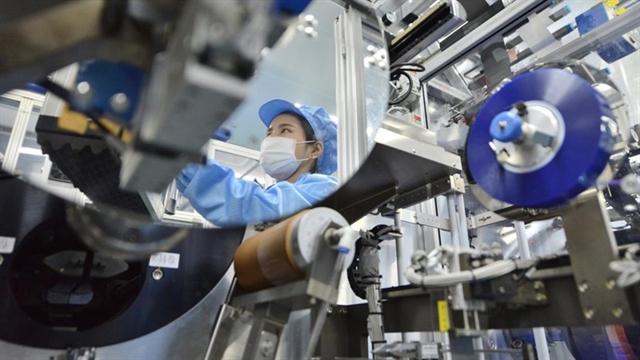As the COVID-19 pandemic continues to develop in an unpredictable fashion despite vaccination campaigns being carried out around the world, experts have said that Việt Nam needs to identify and adopt a long-term plan for post-pandemic economic recovery.

As the COVID-19 pandemic continues to develop in an unpredictable fashion despite vaccination campaigns being carried out around the world, experts have said that Viet Nam needs to identify and adopt a long-term plan for post-pandemic economic recovery.
They were speaking at a workshop held by the Ministry of Planning and Investment’s Central Institute for Economic Management (CIEM) on Thursday about the findings of a report about post-pandemic economic recovery and institutional reforms.
COVID-19 has damaged the global economy, they said, forcing both developed and developing countries to speed up institutional reforms in combination with accessing the Fourth Industrial Revolution and the digital economy.
Having largely brought the pandemic under control this year, Viet Nam has seen remarkable socio-economic recovery.
The resumption of international flights and the launch of vaccine passports have been discussed, with a view to opening up the economy in a safe manner.
According to CIEM Director Tran Thi Hong Minh, the report highlights several future considerations for economic recovery and institutional reform, including macro-economic stabilisation, economic institutional innovation and international integration, the State's role, and economic space for the private sector.
The time to carry out economic reforms should be studied carefully during a post-pandemic economic recovery, she added.
Regarding the reform process recommended in the report, Nguyen Anh Duong from CIEM said it should continue its COVID-19 prevention work and efforts to remove bottlenecks facing the business community and workers as well as promoting economic institutional reform this year.
In 2022, it is necessary for the country to carry out economic recovery measures in tandem with economic institutional reform. Meanwhile, solutions to support economic recovery should be withdrawn, and focus should be sharpened on economic institutional reform, Duong added.
The country can achieve better economic growth if it loosens monetary and fiscal policies, but it could suffer from higher inflationary pressure, he pointed out.
Loose monetary and fiscal policies could result in higher economic growth and improvements in productivity if combined with institutional reform, he added, describing this as an effective way to develop the economy in a rapid and sustainable manner in the face of global economic risks and uncertainties. — VNS





